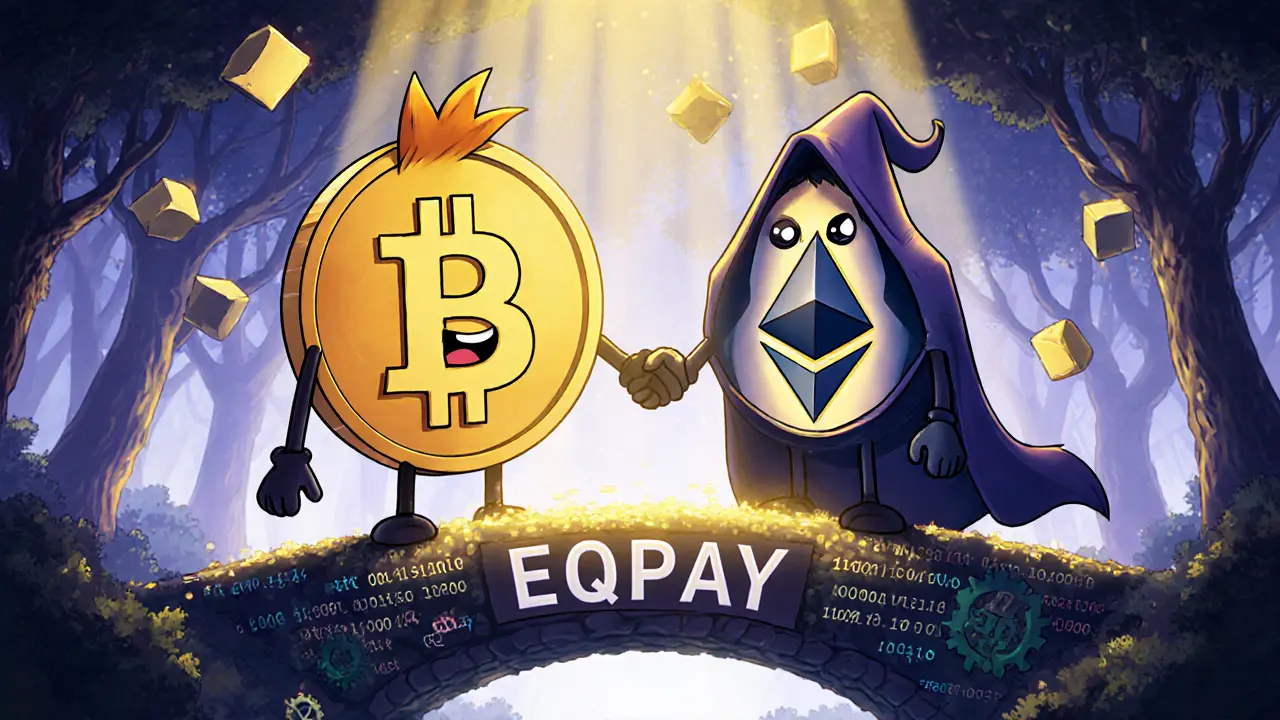EquityPay (EQPAY) is a hybrid crypto project combining Bitcoin's UTXO model with Ethereum smart contracts. It has no ICO, rewards community members, and allows staking with as little as 2 coins. Still in beta, it offers unique tech but carries high risk.
EquityPay blockchain: What It Is, How It Works, and What You Need to Know
When you hear EquityPay blockchain, a blockchain platform designed to tokenize company equity and simplify ownership transfers. Also known as tokenized equity system, it lets businesses issue digital shares that can be bought, sold, and tracked on a public ledger—no paper certificates, no middlemen. This isn’t just another crypto project. It’s a real attempt to fix how private company ownership works—something that’s been stuck in 1990s-era paperwork for decades.
Most startups still use legal firms and transfer agents to handle stock options, vesting schedules, and shareholder records. It’s slow, expensive, and opaque. EquityPay blockchain, a blockchain platform designed to tokenize company equity and simplify ownership transfers. Also known as tokenized equity system, it lets businesses issue digital shares that can be bought, sold, and tracked on a public ledger—no paper certificates, no middlemen. That’s where blockchain equity, digital representation of ownership stakes in a company recorded on a decentralized ledger. Also known as tokenized shares, it enables real-time tracking of who owns what without relying on centralized databases. comes in. Instead of a spreadsheet managed by an accountant, every share movement is permanently recorded on-chain. That means investors get instant proof of ownership, founders avoid costly legal fees, and audits become automated.
But it’s not magic. tokenized equity, digital shares issued on a blockchain that represent legal ownership in a company. Also known as security tokens, they must still comply with securities laws—like SEC regulations in the U.S. or MiCA in the EU. That’s why most EquityPay use cases are tied to regulated platforms. You can’t just mint shares and sell them to anyone. Compliance is built into the system: KYC checks, investor accreditation verification, and transfer restrictions are coded into the smart contracts. This isn’t a DeFi experiment—it’s a legal infrastructure upgrade.
And it’s not just for startups. Think small businesses, family-owned companies, even real estate funds. If you’ve ever been locked out of an investment because you weren’t an accredited investor, or if you’ve watched a founder lose sleep over cap table errors, this matters. decentralized finance, a system of financial services built on blockchain that removes traditional intermediaries like banks. Also known as DeFi, it’s the broader movement that EquityPay blockchain belongs to—bringing transparency and access to areas long controlled by gatekeepers. The goal? To make ownership open, verifiable, and transferable without needing a lawyer on speed dial.
Below, you’ll find real breakdowns of how companies are using EquityPay blockchain today, what went wrong in early attempts, and how to tell if a tokenized equity offer is legitimate—or just another scam pretending to be innovative. No hype. Just facts, tools, and the kind of details you won’t find on a whitepaper.
 31
Oct
31
Oct




